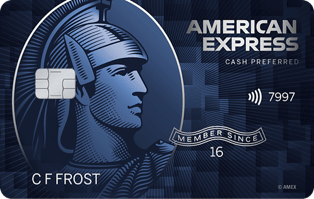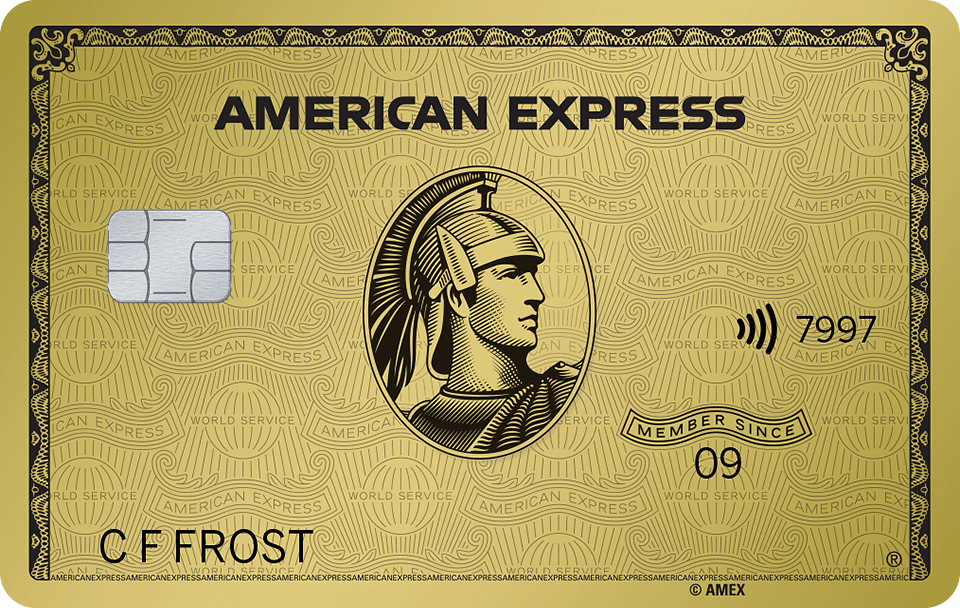- myFICO® Forums
- Types of Credit
- Credit Cards
- Re: How do you think auto CLI’s work?
- Subscribe to RSS Feed
- Mark Topic as New
- Mark Topic as Read
- Float this Topic for Current User
- Bookmark
- Subscribe
- Mute
- Printer Friendly Page
How do you think auto CLI’s work?
Is your credit card giving you the perks you want?
Browse credit cards from a variety of issuers to see if there's a better card for you.
- Mark as New
- Bookmark
- Subscribe
- Mute
- Subscribe to RSS Feed
- Permalink
- Report Inappropriate Content
How do you think auto CLI’s work?
I know that none of us know the answer to this for sure, unless some of us have worked at credit card companies before (which is possible)
but how do you guys think the auto credit limit increases work?
Accounts are reviewed every 6-12 months. Everyone knows that, but what triggers the computer to give you an auto CLI in between those benchmarks? And once the computer is triggered to review your account, what exactly does it review, and what is it looking for?
I can only assume the computer cannot be as thorough as a human. It probably just looks for certain thresholds to be met/exceeded.







- Mark as New
- Bookmark
- Subscribe
- Mute
- Subscribe to RSS Feed
- Permalink
- Report Inappropriate Content
Re: How do you think auto CLI’s work?
@SRT4kid93 wrote:I know that none of us know the answer to this for sure, unless some of us have worked at credit card companies before (which is possible)
but how do you guys think the auto credit limit increases work?
Same way new card approvals work - it depends.
Every instituation has their own criteria, and it can vary from card to card. It can even vary day to day.
Much the same as why did Cap1 flat deny my CLI request on a 11 year old QS account that is currently at a $6500 CL with zero baddies, ever, and was my daily driver card for a number of years. Reason given? Something like "not enough experience at current credit level" . Yet gave me a $10K increase (total $20K CL now) 2 minutes after the QS CLI request on a 10 MONTH old Savor One card that I've barely used?
Logically, it could be argued that it would be in Cap1's better interest to push me towards using the QS more as they're likely to be giving me more cash back on the Savor card, yet the bigger CLI on the Savor makes me more likely to use that one. But then, maybe their algorithm shows that I've made more purchases that fall under the "everything else" category, so they would have paid out more on the 1.5% QS than the 1.0% Savor. I haven't tracked it that granularly, so I don't really know, and that half a percent doesn't really mean anything to me on the relatively low amounts I've run through either of those cards.
Why is it one creditor will only give some people a new $500 card, and another will give that same person a $25K card 5 minutes later? I've even seen myself at the same creditor. Years ago I applied for an AmEx card. Approved at $2500. Got curious, and applied for another AmEx immediately afterwards...$10K approval. I could understand the $10K first, and the $2500 second, assuming I hit their limit threshold. But it makes no sense on the surface why the higher limit card came second.
Reality is that no one is going to tell you exactly how this works. If the exact workings were to be disclosed, it would completely destroy the whole system, as all of us could then easily game the system on a wide scale, and it would then only track how well someone can cheat.
- Mark as New
- Bookmark
- Subscribe
- Mute
- Subscribe to RSS Feed
- Permalink
- Report Inappropriate Content
Re: How do you think auto CLI’s work?
Yea I was more looking for each persons best guess based on their experience. I know there's no way that industry secret could ever be revealed unless there was a high level employee who decided to become a whistleblower after leaving a company.
although that would only tell us what that specific company looked for so I guess we could would need a whistle blower for each card issuer which would take a large scale collaboration between them







- Mark as New
- Bookmark
- Subscribe
- Mute
- Subscribe to RSS Feed
- Permalink
- Report Inappropriate Content
Re: How do you think auto CLI’s work?
@SRT4kid93 wrote:
I can only assume the computer cannot be as thorough as a human.
[ Can look at hundreds of facts is a fraction of a second and not be biased ]
It probably just looks for certain thresholds to be met/exceeded.
[ What is a person supposed to consider? ]
The computer is looking at the same things people programed it to look at.
Better precision, less time and no person involved.
(Age of accounts, inquiries, scores, income, spend, your DTI, history,
other account limits, total CL's, number of cards, etc.)
We will never know the order or thresholds, why worry about it?
Will be different for every issuer !
Better to calculate where you spend money, what cards would benefit you best,
what card should be next, best way to pay your card, etc.
Work on things that you can control, not what thresholds a bank/CU
sets in a program.
Use your card's as you need, pay on time and worry about things that
you can control, improve, change.
If you knew, Cap-1's exact numbers, thresholds, what exact impact would that
have for you. If you need two more years history, 3 less inquiries, 5k better income, and
$500/m more spend, would you get a CL increase any faster. Spend the extra 500/mo etc.
- Mark as New
- Bookmark
- Subscribe
- Mute
- Subscribe to RSS Feed
- Permalink
- Report Inappropriate Content
Re: How do you think auto CLI’s work?
I get what you are saying, but in terms of humans vs computer. Well I think companies reconsideration lines prove my point. You are denied by a computer, but then you talk to a person and get approved.
computers only look at the numbers, humans can take into account why things happened.
a great example is if an authorized user maxed out your card without your knowledge. Is that your fault? Should you be blamed for someone else's negligence? The computer doesn't care, it sees the numbers and makes it's determination.
another example is something that happened to my friend. He accidentally missed a payment one month, and then got back on track the next month. But since he missed a payment without realizing it. Every single payment from there own, went towards the previous month. So let's say he missed marchs payment, but paid In April.
aprils payment went towards the march missed payment, then he got blamed for missing April as well
paid in may, that payment went towards April's balance, he got hit for missing mays payment
paid in June, went towards mays balance, got hit for missing junes payment.
before he knew it, he got blamed for missed 10 payments without realizing it when in reality he only missed 1.







- Mark as New
- Bookmark
- Subscribe
- Mute
- Subscribe to RSS Feed
- Permalink
- Report Inappropriate Content
Re: How do you think auto CLI’s work?
The way an auto CLI works is that the bank sees you struggling with debt and wants to help you struggle more so they increase your limit up to their appetite for risk.
- Mark as New
- Bookmark
- Subscribe
- Mute
- Subscribe to RSS Feed
- Permalink
- Report Inappropriate Content
Re: How do you think auto CLI’s work?
@SRT4kid93 wrote:a great example is if an authorized user maxed out your card without your knowledge. Is that your fault? Should you be blamed for someone else's negligence? The computer doesn't care, it sees the numbers and makes it's determination.
before he knew it, he got blamed for missed 10 payments without realizing it when in reality he only missed 1.
You seem to have a fundamental misunderstanding of how all this works. An AU on your card is no different than you co-signing on a loan for someone else. Someone else fails to make the payments on the loan, and the loan servicer will be coming after you for the money. Is it your fault? Probably not, but you're still responsible for it.
Miss a loan payment, and it doesn't just disappear. Next month, it's still due in ADDITION to the current month's payment. Your friend didn't just miss March's payment - he continued to miss payments for the next 9 months because that's how long it took him to catch up. If all he sent was one month's payment every month, then he continued to be behind for 9 months.
- Mark as New
- Bookmark
- Subscribe
- Mute
- Subscribe to RSS Feed
- Permalink
- Report Inappropriate Content
Re: How do you think auto CLI’s work?
Yes that is exactly what I just said. I don't think there is any misunderstanding on my end.
I understand how AU's work and that they are technically your responsibility. And I understand that it was my friends fault for missing all those payments.
I was simply saying that when a computer looks over your account and sees those things. It doesn't care why it happened cause it doesn't have feelings.
but when a person looks over your account and gives you a chance to explain the situation. It's possible they will push through your approval because they have compassion and understanding, when a computer does not.
is it probable? No, cause the companies are out to make money. But is it possible? Yes.
and that is why I will always prefer that a human handles my account, rather than a computer.







- Mark as New
- Bookmark
- Subscribe
- Mute
- Subscribe to RSS Feed
- Permalink
- Report Inappropriate Content
Re: How do you think auto CLI’s work?
@SRT4kid93 wrote:a great example is if an authorized user maxed out your card without your knowledge. Is that your fault?
Without a question. Unequivocally Yes
In that example, the computer and any human review; you are being blamed for your own negligence.
- Mark as New
- Bookmark
- Subscribe
- Mute
- Subscribe to RSS Feed
- Permalink
- Report Inappropriate Content
Re: How do you think auto CLI’s work?
If you have an AU on your card, you can and should limit their spend potential. I'd say to no more than 20% of a low to moderate CL card. If it is a high limit card, 10% max. The only exception might be if it is a spouse and divorce is not on the horizon.
The primary card holder knows they are legally responsible for payment of card balances. The same holds for cosigners of loans even though responsibility is joint.
When it comes to AU cards or cosigning, just say no.
Fico 8: .......EQ 850 TU 850 EX 850
Fico 4 .....:. EQ 809 TU 823 EX 830 EX Fico 98: 842
Fico 8 BC:. EQ 892 TU 900 EX 900
Fico 8 AU:. EQ 887 TU 897 EX 899
Fico 4 BC:. EQ 826 TU 858, EX Fico 98 BC: 870
Fico 4 AU:. EQ 831 TU 872, EX Fico 98 AU: 861
VS 3.0:...... EQ 835 TU 835 EX 835
CBIS: ........EQ LN Auto 940 EQ LN Home 870 TU Auto 902 TU Home 950